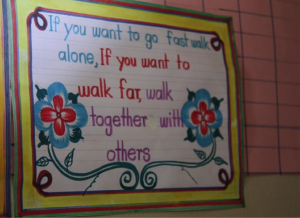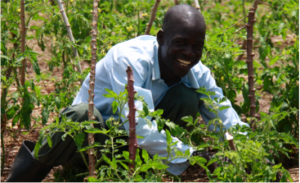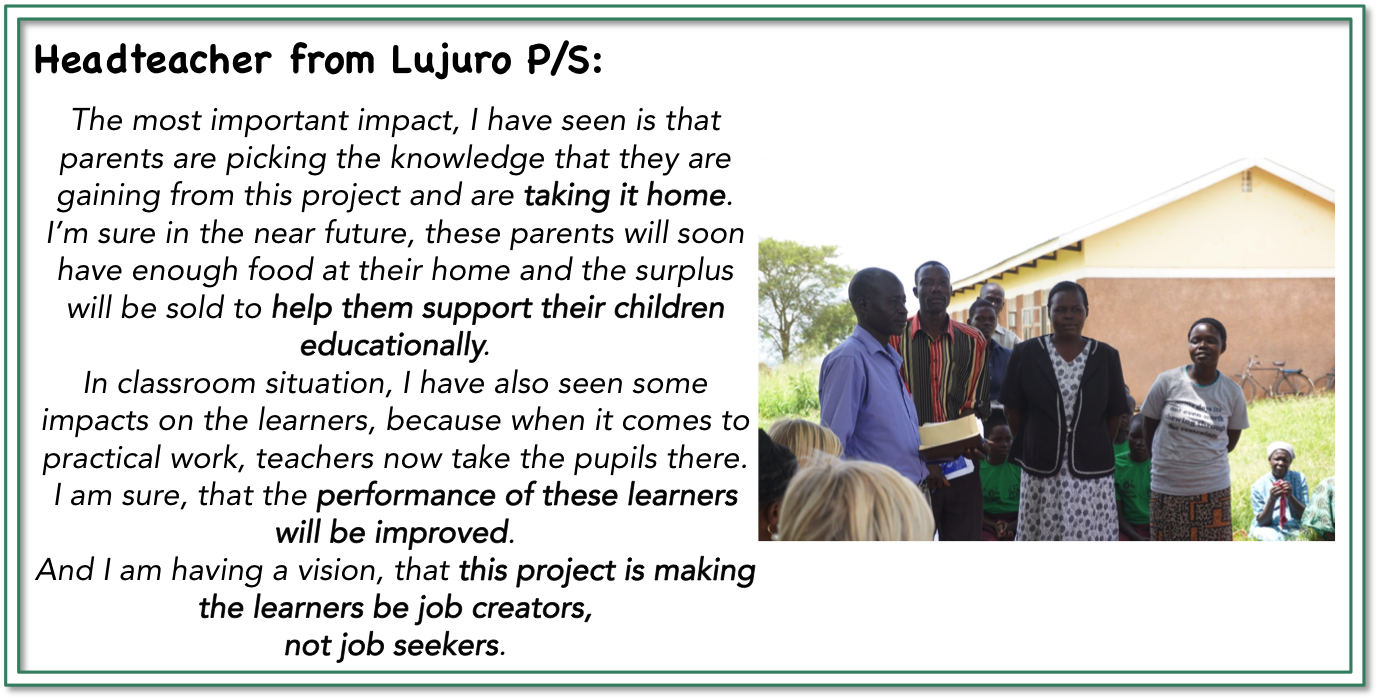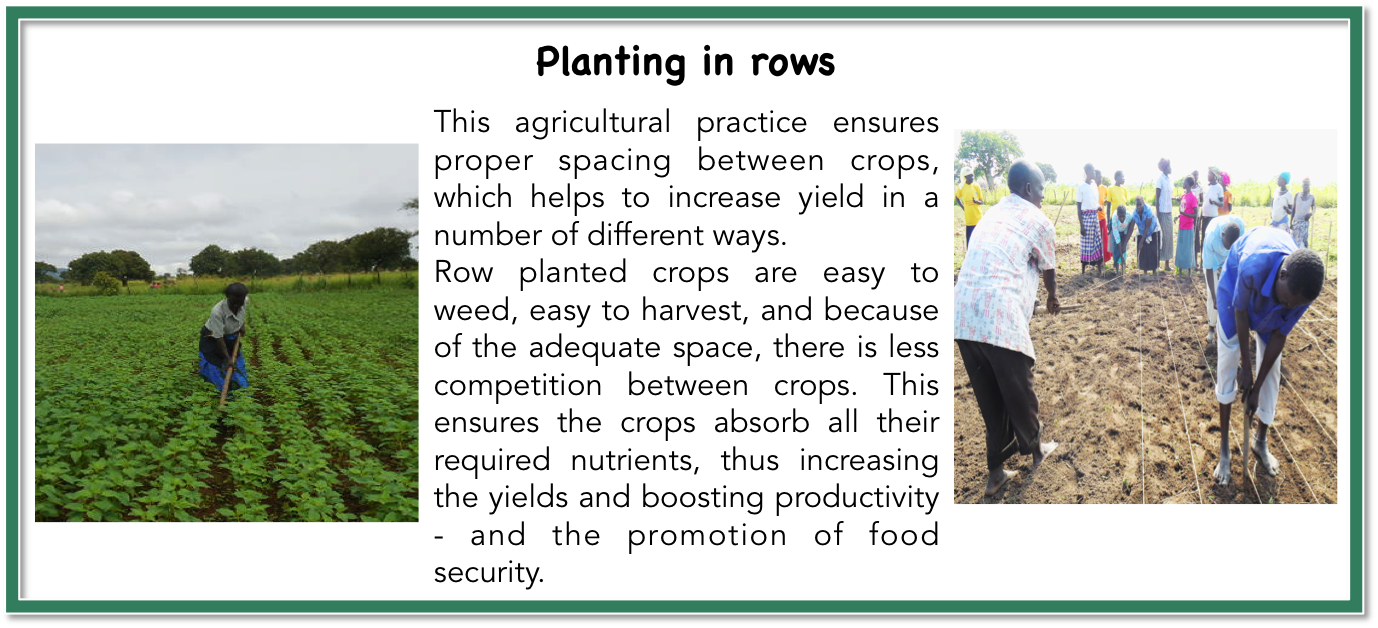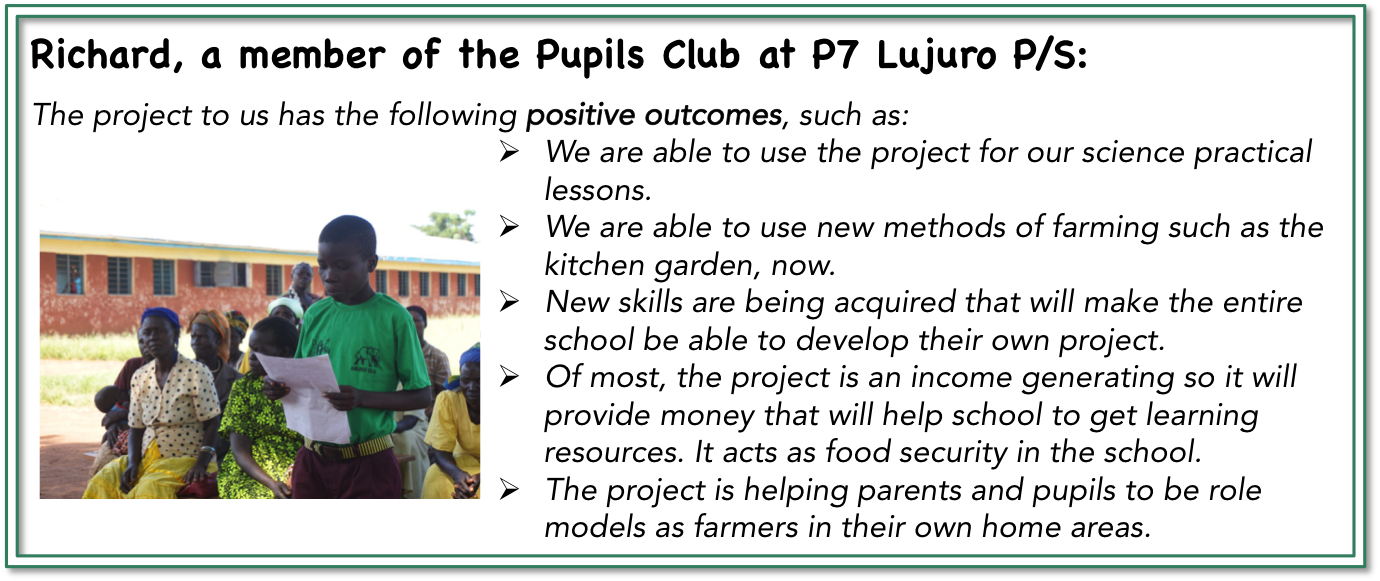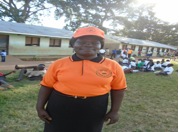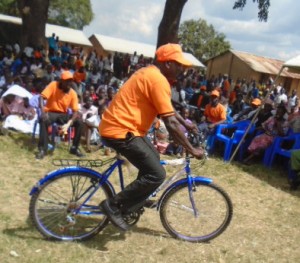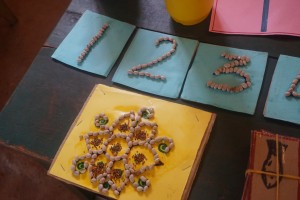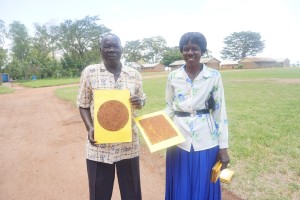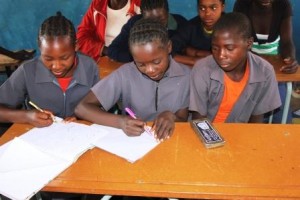Canary Wharf Collection – 11th November 2015
October 29, 2015Can you help us raise funds at Canary Wharf on Wednesday 11th November?
 We found out this month that we’ve been given a slot at Canary Wharf Tube Station for a collection! This is by far the collection highlight of the year for us – last year, we raised £1,000 during one day’s collecting at Canary Wharf – and we’d absolutely love to do that again this year, but we can’t do it without you!
We found out this month that we’ve been given a slot at Canary Wharf Tube Station for a collection! This is by far the collection highlight of the year for us – last year, we raised £1,000 during one day’s collecting at Canary Wharf – and we’d absolutely love to do that again this year, but we can’t do it without you!
We are looking for passionate, motivated and enthusiastic individuals to help fill slots between 06.30 am and 10 pm on 11th November, and we’ll be there with t-shirts, buckets, tins, stickers, signs, (you name it!) so we really stand out and grab everyone’s attention.
 This is a great opportunity to be part of a fantastic and exciting community fundraising campaign contributing to vital education work. Please let us know if you or anyone you know can help – and thank you so much to everyone that has helped with our collections so far this year, you’re amazing!
This is a great opportunity to be part of a fantastic and exciting community fundraising campaign contributing to vital education work. Please let us know if you or anyone you know can help – and thank you so much to everyone that has helped with our collections so far this year, you’re amazing!
Together, we can absolutely blitz this collection and raised a huge sum to support African Revival’s work in Uganda and Zambia 🙂
Interested? Get in touch with Emily on 020 8939 3190 or send an e-mail to emily.brewster@africanrevival.org
Posted in News | Leave a commentA Gallery of Photos and Stories: Celebrating School Demonstration Gardens in Amuru District
October 21, 2015Recently, our Livelihood team was joined by Mette Müller Kristensen, a representative of the Besteller Foundation. For two days, they set out together to assess the project and hear the stories of SDG participants – but above all to celebrate the progress of our School Demonstration Gardens! Find out more with our gallery of photos, inspiring speeches, quotes and comments! Click on here to see it!
Here are a few sneak peeks:
At Lujuro Primary School, the SDG group, called Lujuro Farmer Group, took the celebration up to another level, cheering with great joy and enthusiastically performing a bunch of traditional Acholi songs and dances.
The Lujuro P/S Pupils Entrepreneurship Club prepared some traditional songs too. One of them is about teamwork, as they sing:
“We work together, and it’s easier!”
This philosophy was put into practice when pupils helped parents to transplant the onions from the nursery bed. The work was completed quicker, and the parents will show their gratitude for the pupils’ help by sharing the profits with them.
Inspired by the song, Mette, Bestseller Representative, added the African proverb:
“If you want to walk fast walk alone.
And if you want to walk far, walk together!”
And indeed, in the end, SDG is all about working together to ensure equal access to quality education, so that when the next generation walk hand in hand, they can go even further!
Posted in News | Leave a commentHappy World Food Day!
October 16, 2015‘Either we build a future for all, or there will be no acceptable future for anyone:
Let’s be the Zero Hunger Generation!’
– is one of the messages of the Food and Agriculture Organisation of the United Nations. and through our School Demonstration Garden Project, we are working towards this goal too! Currently, we implemented the project under the name LEARN in Agago and Abim in cooperation with SVN and in Amuru thanks to the support of the Bestseller Fundation. And, we have just secured a multi-years grant to implement the SDG in Zambia!
What do we do?
We set up farmer groups comprising of up to 50 parents who work at the school on the demonstration garden, attend weekly meetings and receive practical training by AR field staff. Our field staff support them in every step of the way from the preparation of the land to the marketing of their produce and finally, they also receive training in saving techniques and financial management to ensure their financial stability. After selling their produce, 30% of the harvest profits is saved for the next season, 40% is distributed among parents and the school receives 30%. Previously, these profits were then used to provide school meals, subsidise fees for poorest pupils or provide scholastic materials. Furthermore, pupils entrepreneurship clubs are formed too, in order to ensure the next generation are acquiring valuable skills.
Why?
Agriculture continues to play a critical role – i.e. in the Ugandan economy, employing 82% of the national workforce. Low yields and inefficient agricultural practices leave households vulnerable. As a result, children also often go hungry while at school, a major factor as to why Uganda has the highest school dropout rate in East Africa. Additionally, this affects concentration levels and learning retention. Therefore, this project ties education and livelihoods together, and is one of African Revival’s core areas of expertise as our intervention seeks to address two interlinked issues – low quality education at a primary level and food insecurity compounded by poor agricultural productivity. We aim to create stronger links between parents and schools leading to increased enrolment, attendance and academic attainment, and children are also learning practical agricultural skills. Parents and pupils increase agricultural productivity both at the school garden and home gardens, both increasing food security and nutrition. In the end, we want to empower these communities to lift themselves out of poverty!
To celebrate the World Food Day we’ve prepared a few of our recent gathered reflections of our beneficiaries, some photos of the new agricultural techniques implemented in the school and some ‘do it yourself’ tips for all growers out there from our agriculture team.
As we aim to strengthen a strong sense of community throughout the project, parents, pupils and teachers are working hand in hand to secure a hunger-free future in which every child is nourished well, and able to thrive in his/her education/at school.
Happy World Food Day!
Posted in News | Leave a commentWorld Teachers’ Day – Celebrations Ugandan style!
October 8, 2015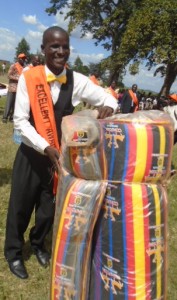 On the 5th of October every year, World Teachers’ Day is held to honour the hard work and dedication of teachers all across the globe. And Anaka, a town in the Nwoya district of Northern Uganda, wasn’t about to miss out on the celebrations! This year, the town council organised an awards ceremony to allow the local community to celebrate the achievements of its teachers, while also raising awareness of the vital contribution that teachers make to education and development. During the ceremony, the resident district commissioner presented awards to certain teachers who had exhibited excellent teaching performance. Prizes included a bike and a mattress – practicality always comes first in Uganda!
On the 5th of October every year, World Teachers’ Day is held to honour the hard work and dedication of teachers all across the globe. And Anaka, a town in the Nwoya district of Northern Uganda, wasn’t about to miss out on the celebrations! This year, the town council organised an awards ceremony to allow the local community to celebrate the achievements of its teachers, while also raising awareness of the vital contribution that teachers make to education and development. During the ceremony, the resident district commissioner presented awards to certain teachers who had exhibited excellent teaching performance. Prizes included a bike and a mattress – practicality always comes first in Uganda!
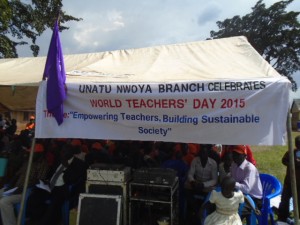 African Revival’s Early Childhood Development (ECD) Programme Officer, Maxwell Kinyera, attended the celebrations and interviewed some of the teachers themselves, whose commitment to their role is the backbone of the nation’s education system. Read Maxwell’s interviews below, in which the teachers reveal how they celebrated World Teachers’ Day and what they hope for their pupils and school in the future, and offer some words of advice for Newly Qualified Teachers all over the world!
African Revival’s Early Childhood Development (ECD) Programme Officer, Maxwell Kinyera, attended the celebrations and interviewed some of the teachers themselves, whose commitment to their role is the backbone of the nation’s education system. Read Maxwell’s interviews below, in which the teachers reveal how they celebrated World Teachers’ Day and what they hope for their pupils and school in the future, and offer some words of advice for Newly Qualified Teachers all over the world!
Florence, aged 33, is a teacher at St. Luke Primary School in Nwoya district. To celebrate world teachers’ day, she prepared her children to present a poem. In the future, she wants her pupils to become responsible members of the community they live in, while she wants her school to be a centre for academic excellence. Florence has undergone two teacher trainings; refresher training on learning aids development and training on child protection. She believes teachers’ training should focus on developing teachers holistically so that the teachers should be able to produce children who are all rounded citizens. She welcomed and encouraged teachers out there who have just finished college to join the profession with all their heart even if the pay is small.
To celebrate World Teachers’ Day, Omona, a teacher at Anaka P.7 School, prepared her pupils to present welcome songs and dances to entertain the guests. In the future, she wants these pupils to have better lives through good jobs. In order to achieve this, she hopes for better classrooms and academic performance in her school. Omona received two trainings organised by African Revival. She added that the training helped her to develop a growth mind-set and become a better teacher. According to her thinking, teachers’ training should focus on academic and adolescent sexual reproductive health and rights. To encourage other teachers across the world who have just finished training, she said they should have positive attitude towards teaching. She appealed to them to prepare fully.
Mr. Patel is the Head-teacher of Purongo Hill Primary School, who was voted the best head teacher in the district (and as a prize received a bike – which he can be seen riding in the photo!). He contributed money towards the World Teachers’ Day celebration and he was among the organising committee for the district level celebration. Mr Patel holds a diploma in primary education and several on-job trainings related to his functions. He thinks teachers’ training should focus on attitude change and curriculum delivery, and encourages newly qualified teachers to love their profession and be committed teachers. He added that through hard work they can make them stand out from the crowd and be recognized by others. When teaching, Mr Patel enjoys being orderly and giving facts and career guidance to the learners. In the future, he wants his pupils to work hard to become better members of the society, taking up leadership positions and even replacing them in the teaching profession. He wants his school to be the best, and a model school where people and other schools come to learn from.
Interviews and photos by Maxwell Kinyera, Early Childhood Development (ECD) Programme Officer at African Revival.
Posted in News | Tagged Education, Teachers, Uganda, World Teachers' Day | Leave a commentTeacher Profile: Meet Kuluse
September 29, 2015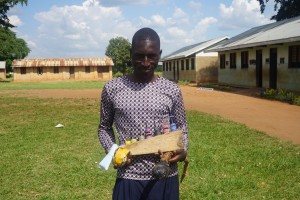 Kuluse, 25, is a nursery teacher in Kamboli district in Northern Uganda. He has just finished his training in Early Childhood Development and nursery education at Gulu Primary Teaching College. Newly qualified and raring to go, Kuluse draws his motivation from his students’ passion for life and learning. Kuluse shared his teaching experiences with African Revival when we met him at a Jumpstart ! teacher training
Kuluse, 25, is a nursery teacher in Kamboli district in Northern Uganda. He has just finished his training in Early Childhood Development and nursery education at Gulu Primary Teaching College. Newly qualified and raring to go, Kuluse draws his motivation from his students’ passion for life and learning. Kuluse shared his teaching experiences with African Revival when we met him at a Jumpstart ! teacher training  session, implemented by our Education team and funded by the UK Department for International Development’s UKAid match programme.
session, implemented by our Education team and funded by the UK Department for International Development’s UKAid match programme.
I first started as a part time teacher. Later I joined a training course to become a teacher. I joined ECD training because I felt love for the children. I never wanted to be a teacher, I was just fascinated by the childen’s behavior. I enjoy most of the learning areas, but I love observing the children’s lifestyles, seeing how they try to relate to each other and watching them develop as people. I enjoy watching them be creative, its the part of the teaching I really enjoy.
I enjoy teaching maths. It was one of my favourite subjects during my childhood, right until I reached my advanced level. I still took maths as part of my A level combination, so naturally I love maths.
There are challenges that you face as a teacher when joining a school. One of the challenges is that we are a young school, so we are still lacking a lot of materials, but we want to appreciate African Revival because they have always given us support. Another thing is the parents; they are not very encouraging, they were speaking badly about the school.
But the good thing is, the time I spend with the children in class, it makes me feel very relaxed. Sometimes I don’t even feel like releasing them to go home, because when I’m with them I’m enjoying my time. My children don’t want to leave. One time they said ‘teacher we are going with you !’ so they don’t feel like leaving. They enjoy it so much. Sometimes after the daily routine, they sit down and say, teacher now it is time to dance. The traditional cultural dances – they enjoy it so much.
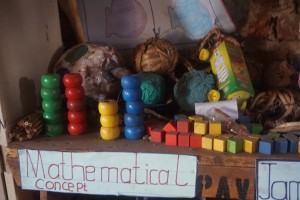 I’ve really achieved a lot by attending this [Jumpstart !] training. In fact yesterday I didn’t sleep. I spent most of the night working on my learning aids, because I felt like if I spend the time now, I will make a lot of things that will help me in class.
I’ve really achieved a lot by attending this [Jumpstart !] training. In fact yesterday I didn’t sleep. I spent most of the night working on my learning aids, because I felt like if I spend the time now, I will make a lot of things that will help me in class.
During training we learnt about how we can take part in developing the school. We should sell our school by the commitment that we give to the children. We should not mind the current situation and work hard to build a better quality, and once the quality comes, it will sell the name of the school and attract the parents’ attention towards the school. Then there are other ways, like materials that we use. We shall be creative so that the money that we could have used on buying these learning materials, we save it for other things.
The best thing I got [from attending these workshops], is that I shared the experience with my colleagues. Things that I never knew how to do, I learned from my colleagues, because the trainers encouraged us to have group work activities, so we worked well in teams.
My wish for my school is first class knowledge. Most of the knowledge I’m having here, I want to go and share it with my fellow staff to make sure we take our school to the best level of education standards. I also wish that, in sometime to come, I shall be one of the authors of, or write a book that will help teachers know how to pursue their teaching dream.
Nursery education is the foundation of our nation.
If the foundation is built well, our dreams for Uganda will all come to pass.
Posted in News | Tagged ECD, Education, Gulu, Jumpstart!, Nursery, School, Teacher training, Uganda | Leave a comment
Teacher Profile: Sajida Mweemba
September 28, 2015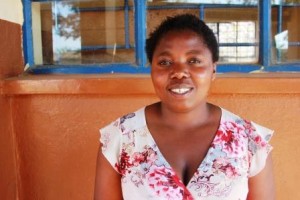 Meet Sajida Mweemba, a 26 year old teacher from Kinnertone Community School. Sajida is from the town of Kalomo, southern Zambia, but during the week, she lives in her school’s office in Kinnertone with her son, 8 year-old Colin, and daughter Maluba, who is six. After long weeks at school, Sajida enjoys coming home to Kalomo to spend weekends with her husband.
Meet Sajida Mweemba, a 26 year old teacher from Kinnertone Community School. Sajida is from the town of Kalomo, southern Zambia, but during the week, she lives in her school’s office in Kinnertone with her son, 8 year-old Colin, and daughter Maluba, who is six. After long weeks at school, Sajida enjoys coming home to Kalomo to spend weekends with her husband.
Sajida began her teaching career as soon as she finished Grade 12 at school; she obtained such good school results that upon graduation four years ago, she was offered a teaching post at a private school. After two years of teaching in the private sector, Sajida was determined to obtain a formal teaching qualification. She was accepted onto a teaching course, but was only able to pay for one term at the college before running out of funds to support herself, and was sadly forced to drop out. Without a teaching certificate, Sajida was unable to become a government teacher, but her local district education authorities saw her potential and placed her at a community school instead – Kinnertone Community School, where she has now been working since 2013.
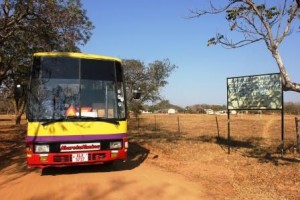 In a stroke of serendipitous timing, at that time, African Revival was looking to support bright, untrained community teachers through teacher training, and we happened to meet Sajida…fast forward 18 months, and Sajida has almost finished her teaching course at Charles Lwenga Teacher Training College! Sajida enjoys her job and firmly believes in the value of education: “I like to be a teacher because I like seeing children learn, and I also enjoy being with my students. Education is important because it changes the behaviour of the people in the community. You find that in the community there are people who [are] educated, and it is good for them to mix with those who aren’t educated, because you can develop and teach one another.”
In a stroke of serendipitous timing, at that time, African Revival was looking to support bright, untrained community teachers through teacher training, and we happened to meet Sajida…fast forward 18 months, and Sajida has almost finished her teaching course at Charles Lwenga Teacher Training College! Sajida enjoys her job and firmly believes in the value of education: “I like to be a teacher because I like seeing children learn, and I also enjoy being with my students. Education is important because it changes the behaviour of the people in the community. You find that in the community there are people who [are] educated, and it is good for them to mix with those who aren’t educated, because you can develop and teach one another.”
Sajida currently teaches Grade 3, and she tells us that her 18 pupils are doing very well: “my class are doing very fine; they are children who like reading”. In fact, Sajida has high hopes for her enthusiastic readers: “I will be happy if I can see that the children I have taught are developing the country, like if they are becoming the teachers, nurses, and other valuable jobs.” It looks like Sajida’s dreams for her pupils could well come true as she told us that her pupils aspire to follow in her footsteps: “there are some children who like to be with me – they even imitate how I talk and say things like “I want to be a teacher like you, Madame!”.
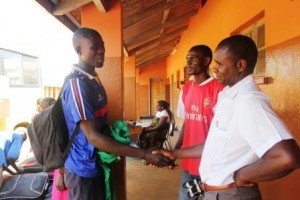 It is heart-warming moments like these which keep Sajida motivated, as being a community teacher can be very difficult: “At community schools, you find that they don’t support you financially. But we try by all means. Sometimes, it can be difficult trying to get parents to come to school so that we can talk together about how to best support their child, and help with any difficulties they have. But sometimes don’t come to meetings to help us solve these problems. Also, it is sad because sometimes children stay absent from school for a long time.” Although these obstacles can be difficult to overcome, through her training, Sajida is learning how to effectively communicate with parents, so that they can work together for the good for the children.
It is heart-warming moments like these which keep Sajida motivated, as being a community teacher can be very difficult: “At community schools, you find that they don’t support you financially. But we try by all means. Sometimes, it can be difficult trying to get parents to come to school so that we can talk together about how to best support their child, and help with any difficulties they have. But sometimes don’t come to meetings to help us solve these problems. Also, it is sad because sometimes children stay absent from school for a long time.” Although these obstacles can be difficult to overcome, through her training, Sajida is learning how to effectively communicate with parents, so that they can work together for the good for the children.
Sajida has been excelling in her teacher training so far: “I have enjoyed this training because from the time I started teaching, I had that hope that I would complete the course without failing, and I am happy because when we sat exams a few months ago, I passed and I am still here and I know that I will pass.” We are delighted to have been able to offer Sajida the opportunity to obtain a formal teaching qualification, and we are sure she is going to smash her final exams in a few months time!
Posted in News | Leave a commentJumpstart! news update: Making Acholi learning aids from local materials!
September 24, 2015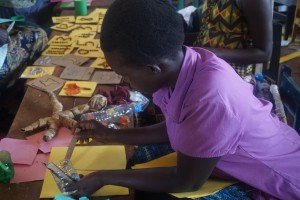 When we visited the classrooms at Anaka Primary 7, every inch of wall space was occupied by colourful learning aids depicting letters, numbers and local folk tales. The school was hosting an African Revival Jumpstart! training workshop for teachers from local nursery schools that focused on:
When we visited the classrooms at Anaka Primary 7, every inch of wall space was occupied by colourful learning aids depicting letters, numbers and local folk tales. The school was hosting an African Revival Jumpstart! training workshop for teachers from local nursery schools that focused on:
- How to make learning aids from raw local materials at nursery level
- Using learning resources in the local Acholi language
The participants learned how to source raw materials from the natural environment and use them to make a variety of educational equipment in the local Acholi language.
Local materials are an incredibly cheap source of learning aids, and also familiar to the children, which helps to facilitate their understanding of new concepts. Teacher trainer Martina explained how using learning aids made of local materials can help children to master their environments:
‘The children develop a precision for what is in their environment. When they see a pot made of clay, they know what clay is called, they begin to value and appreciate their environment and later they can also develop skills in making those materials themselves, helping them professionally later on.’
Furthermore, nursery-teaching resources written in the local Acholi language enhance the students’ learning because it is the language they use at home.
The language of instruction throughout the schooling system in Uganda is English. However, research confirms that children learn best in their mother tongue as a prelude to bilingual education because it allows them to develop stronger reading, writing and mathematical skills. This lays the foundations for their future education and acquisition of more complex concepts. Moreover, using Acholi language materials can boost the self-confidence and motivation of pupils and increase their interest in what they are learning – because they understand it! Martina described the benefits of using Acholi learning aids:
‘Firstly, the children in the nursery schools are still developing their language and still using the local language at home. So we hope that, when they come to school and get materials in the local language, they will develop their language skills fast because they understand it. At home we call a pot ‘agulu’ – when they come to school they also find ‘agulu’, so they develop reading and writing skills faster.
But teacher trainer Ojok Ojara, who underwent two years of ECD teacher training in Australia, admits there are some challenges persuading the local communities of the benefits of teaching nursery and primary classes in Acholi:
‘People think that when you teach in Acholi, you are not teaching in English. But you can teach in both! Let the children develop the language they really use at home, let them master it. They will learn the second language very quickly.’
Ojok Ojara is now advocating for the introduction of English only after children have completed class 3 of primary school, aged 8. Indeed, children who have a firm grounding in Acholi and have been given the opportunity to develop skills and conceptual understanding in their mother tongue, will learn English quicker than children who have been instructed purely in English. In addition, they are more empowered as learners when taught in their mother tongue, which they can now study all the way to university level in the Ugandan education system
The African Revival training focused on the importance of the use of Acholi in the classroom, while also showing participants practical ways of incorporating the language into the classroom using handmade learning aids. Trainers Martina and Ojok Ojara expressed their firm hope that the teachers would take away the new techniques and adapt them to their own classrooms, and plan to monitor their progress. But the level of motivation amongst the trainees is high. When asked if he enjoyed the training sessions, nursery teacher Kuluse admitted:
‘Yes! In fact yesterday I didn’t sleep. I spent most of the night working on my learning aids, because I thought I will make a lot of things that will help me in class, so I’ve really achieved a lot in this training.’
 We hope he doesn’t stay up every night making new resources – teaching is a tiring job! Kuluse is clearly very passionate continuing professional development for teachers, which he sees as the key to raising education standards in Uganda, and hopes to share his new knowledge with his colleagues. He also views Early Childhood Development as integral to his nation’s progress:
We hope he doesn’t stay up every night making new resources – teaching is a tiring job! Kuluse is clearly very passionate continuing professional development for teachers, which he sees as the key to raising education standards in Uganda, and hopes to share his new knowledge with his colleagues. He also views Early Childhood Development as integral to his nation’s progress:
‘Nursery education is the foundation of our nation. If the foundation is built well, our dreams for Uganda will all come to pass’
With more and more Acholi being introduced into nursery education, in conjunction with vibrant, engaging and locally sourced learning aids, we are sure this foundation is growing stronger by the day.
Posted in News | Tagged African Revival, ECD, Education, International Development, Nursery School, Uganda | Leave a commentTeacher Profile: Chitambo Elizabeth
September 21, 2015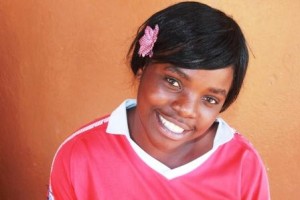 Chitambo Elizabeth is a 22 year-old teacher who currently works at Cjikoli Basic School, 4km away from Kalomo town, where our Zambian office is based in the country’s southern province. She lives in Kalomo with her husband, and her baby son, Luck.
Chitambo Elizabeth is a 22 year-old teacher who currently works at Cjikoli Basic School, 4km away from Kalomo town, where our Zambian office is based in the country’s southern province. She lives in Kalomo with her husband, and her baby son, Luck.
Elizabeth knew from a young age that she was destined to become a teacher: “from the time I was born, I have called myself a teacher because even when I was very little, I was always teaching others, and so when I grew up, I thought I could teach a class. You could say that I have always wanted to be a teacher!” Fortunately for Elizabeth, once she finished high school two years ago, the community caught wind of her love for teaching and her natural ability to teach others, and was immediately snapped up by Cjikoli Basic School, despite not holding a teaching qualification.
Elizabeth absolutely loves her job, and told us: “when you are a teacher, you find out a lot of things and learn lots of things because when you are teaching, as you are interacting with pupils, you learn from them and they learn from you also. I am always learning. I am someone who is discovering new things every day.”
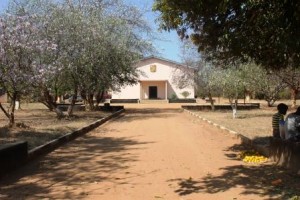 Elizabeth is currently teaching 32 pupils (16 boys and 16 girls) in Grade 4: “I like my class very much, and 22 of my pupils can read and write so we are making good progress!” Elizabeth is determined that with lots of hard work, all her pupils will soon be able to read and write! As such, she is committed to ensuring that her students get the best start in life, so that they can enjoy a happy future: “I would like to see all my pupils have a good life, so that they can have everything they need. I don’t want to see them have a life of begging, or suffering. No. I want to see them have their own things. I am teaching them to be independent so when they grow up, they can do things on their own.”
Elizabeth is currently teaching 32 pupils (16 boys and 16 girls) in Grade 4: “I like my class very much, and 22 of my pupils can read and write so we are making good progress!” Elizabeth is determined that with lots of hard work, all her pupils will soon be able to read and write! As such, she is committed to ensuring that her students get the best start in life, so that they can enjoy a happy future: “I would like to see all my pupils have a good life, so that they can have everything they need. I don’t want to see them have a life of begging, or suffering. No. I want to see them have their own things. I am teaching them to be independent so when they grow up, they can do things on their own.”
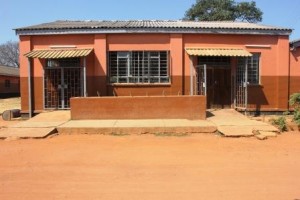 A keen learner, Elizabeth jumped at the opportunity to study for her teaching certificate at Charles Lwenga College. Ever the teacher, Elizabeth tells us that she has even been sharing all her new-found knowledge with her colleagues, and helping them to grasp the teaching concepts which she has been learning. She has now been studying for 18 months, and has enjoyed the experience so far: “it has been a good training; I have learnt a lot of things. Before, I wasn’t trained, but now I know what a teacher does, what I am supposed to do, what I am supposed to teach and how to handle the community.”
A keen learner, Elizabeth jumped at the opportunity to study for her teaching certificate at Charles Lwenga College. Ever the teacher, Elizabeth tells us that she has even been sharing all her new-found knowledge with her colleagues, and helping them to grasp the teaching concepts which she has been learning. She has now been studying for 18 months, and has enjoyed the experience so far: “it has been a good training; I have learnt a lot of things. Before, I wasn’t trained, but now I know what a teacher does, what I am supposed to do, what I am supposed to teach and how to handle the community.”
Indeed, working at a community school presents its challenges. Elizabeth told us:“Since I am at the school, I have not been paid. I am married so my husband supports me, but for community teachers with no families, it is very hard. It can be discouraging because you work hard and at the end of the day, you get nothing because parents don’t have enough money to pay school fees which pay our salaries.”
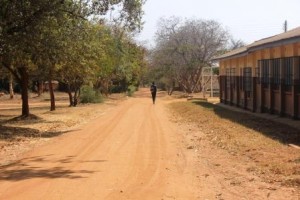 We have been so pleased to sponsor Elizabeth through her studies, so that she can hone her natural abilities, and improve her teaching even further. Once Elizabeth gains her recognized teaching qualification, she will be able to be paid by the government which means that she will be fairly compensated for all her hard work! Elizabeth is very happy about this good news and told us: “Thanks, we are so grateful for your help; thank you for sponsoring us – without you we wouldn’t be here and without you, we would not have acquired the knowledge which we have gained here! We are now better teachers because of you!”
We have been so pleased to sponsor Elizabeth through her studies, so that she can hone her natural abilities, and improve her teaching even further. Once Elizabeth gains her recognized teaching qualification, she will be able to be paid by the government which means that she will be fairly compensated for all her hard work! Elizabeth is very happy about this good news and told us: “Thanks, we are so grateful for your help; thank you for sponsoring us – without you we wouldn’t be here and without you, we would not have acquired the knowledge which we have gained here! We are now better teachers because of you!”
Elizabeth has been so thankful for our support but the truth is, it’s been our absolute pleasure, and we cannot wait to watch Elizabeth qualify as a fully certified teacher in December 2015!
Posted in News | Leave a commentNews from our Jumpstart! Programme: ECD Centres are mapping their future!
September 18, 2015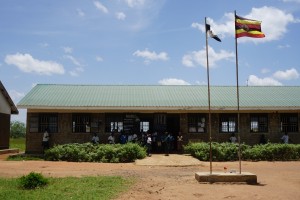 Our Education Jumpstart! team is currently busy conducting Centre Development
Our Education Jumpstart! team is currently busy conducting Centre Development
Plan workshops, in which CMC (Centre Management Committee) members, PTA
(Parents-Teacher-Association) members, SMC (School Management Committees) members and caregivers are trained in developing a Centre Development Plan (CDP) for
their ECD centre. Last week, a two-days workshop was held at St Kizito Bidati Nursery School. With all parties attending, there were 10 enthusiastic and willing ‘learners’, eager to develop a 3-year-plan with one main goal: Quality Education!
The workshop followed three clearly defined objectives:
- Understand planning in the context of Centre Development Plan
- Identify areas that can be considered in that plan
- Understand the steps involved in the development plan
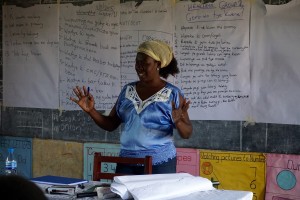 The key word for these workshops is empowerment: We help and guide them through the process of developing their Centre Management Plan by giving them incentives, asking questions and providing some constructive assistance when needed – but it is our participants that come up with concrete ideas which will then translate into their own, individual, customised Centre Development Plan! Right from the start, it is especially important to our Education Programme Coordinator Richard for everyone to realise how quality education can be achieved:
The key word for these workshops is empowerment: We help and guide them through the process of developing their Centre Management Plan by giving them incentives, asking questions and providing some constructive assistance when needed – but it is our participants that come up with concrete ideas which will then translate into their own, individual, customised Centre Development Plan! Right from the start, it is especially important to our Education Programme Coordinator Richard for everyone to realise how quality education can be achieved:
“A lot of school development plans focus on improving infrastructure. However, that doesn’t always have to translate into quality education! Teachers, for example, are much more essential – whatever you invest in their training and development will provide quality education!”
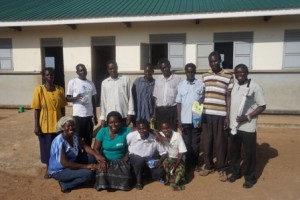 The participants at St Kizito Bidati quickly understood that quality education can only be achieved through a multifaceted approach. This is why, on DAY I, they identified four key areas which their CDP shall focus on: First of all, special emphasis shall be put on (1) ‘Curriculum delivery’ – This means it’s all about the teachers, their training, refresher workshops and adequate materials, but also their motivation from the parents. Here, Julius, a CMC member, stresses
The participants at St Kizito Bidati quickly understood that quality education can only be achieved through a multifaceted approach. This is why, on DAY I, they identified four key areas which their CDP shall focus on: First of all, special emphasis shall be put on (1) ‘Curriculum delivery’ – This means it’s all about the teachers, their training, refresher workshops and adequate materials, but also their motivation from the parents. Here, Julius, a CMC member, stresses
“If you motivate the teachers, they will love your children more. If you care about this, about the teachers, they will have a set mind, they will care about a only your children, not worry about anything else.”
 The second key area is (2) ‘Child-friendly learning environment’. The main focus will be ‘Creating a talking classroom’. This will involve investing in resources, so that at the end of the day, the classrooms are talking for themselves. However, an eye shall also be put on improving outside playing materials and providing enough shade for the children to play outside. Additionally, ensuring a clean and safe environment as well as a clean water source are also part and parcel of this key area. Thirdly, ‘school infrastructure’ (3) shall be improved through, for example, the construction of a bathing facility. Last but not least, boosting (4) ‘parental involvement’ is the fourth key area identified. They are aiming at sensitising parents on the value of ECD through events such as Parents Open Days. Additionally, they came up with another great idea to raise awareness about the importance of ECD: In Uganda, elections are coming up next May and local leaders have already been busy campaigning; the people from Bidati will try to convince some of these local leaders to include ECD in their manifestos! Parental involvement is a key issue for a sustainable change at every school, and at St Kitizito Bidati. This was also evident when looking at development partners and stakeholders. In this respect, as much as the support by NGOs is extremely valuable in these communities, it is decisive to look at them as an additional source of funding that can contribute to areas where parents lack sufficient funding.
The second key area is (2) ‘Child-friendly learning environment’. The main focus will be ‘Creating a talking classroom’. This will involve investing in resources, so that at the end of the day, the classrooms are talking for themselves. However, an eye shall also be put on improving outside playing materials and providing enough shade for the children to play outside. Additionally, ensuring a clean and safe environment as well as a clean water source are also part and parcel of this key area. Thirdly, ‘school infrastructure’ (3) shall be improved through, for example, the construction of a bathing facility. Last but not least, boosting (4) ‘parental involvement’ is the fourth key area identified. They are aiming at sensitising parents on the value of ECD through events such as Parents Open Days. Additionally, they came up with another great idea to raise awareness about the importance of ECD: In Uganda, elections are coming up next May and local leaders have already been busy campaigning; the people from Bidati will try to convince some of these local leaders to include ECD in their manifestos! Parental involvement is a key issue for a sustainable change at every school, and at St Kitizito Bidati. This was also evident when looking at development partners and stakeholders. In this respect, as much as the support by NGOs is extremely valuable in these communities, it is decisive to look at them as an additional source of funding that can contribute to areas where parents lack sufficient funding.
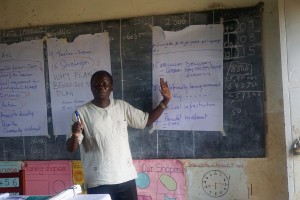 On DAY II, they were ready to get into the details and started off with a SWOT/SCOT (Strengths, Weaknesses/Challenges, Opportunities, Threats) analysis of their school. This is done for specific purpose:
On DAY II, they were ready to get into the details and started off with a SWOT/SCOT (Strengths, Weaknesses/Challenges, Opportunities, Threats) analysis of their school. This is done for specific purpose:
“We want them to see everything in order to make them aware of what is going on how they can use their opportunities to erase their weakness & strengths.”(Richard)
As the ECD centre is only in its nascent stage, it is faced with several challenges andweaknesses, ranging from a lack of classroom, bathing facilities, shades and playing and learning material to high rates of absenteeism in rainy and harvest seasons and rather low 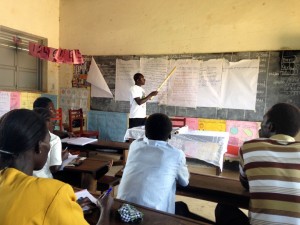 parental involvement. And poverty continues to plague the communities in the region, ultimately representing a threat to the mere maintenance of the nursery. However, they hope to tackle these issues by drawing on their strengths, such as dedicated and qualified teachers, committed CMC members, good enrolment and valuable support of the primary section, and exploiting their ‘opportunities’, may it be through cultivating bare school land for meals for the children or bringing more parents as well as children on board through greater community sensitisation.
parental involvement. And poverty continues to plague the communities in the region, ultimately representing a threat to the mere maintenance of the nursery. However, they hope to tackle these issues by drawing on their strengths, such as dedicated and qualified teachers, committed CMC members, good enrolment and valuable support of the primary section, and exploiting their ‘opportunities’, may it be through cultivating bare school land for meals for the children or bringing more parents as well as children on board through greater community sensitisation.
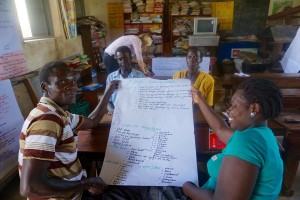 Before everyone was off for the weekend, they started to get to the details, having a look at what resources and expenses will be necessary in order to implement their CDP. Participants were split up into groups. Coincidentally, their results perfectly complemented each other: While the first focused much more on the construction aspect of the SDP, the second prioritised on resources needed inside the classrooms. And once again, they agree on the importance of investing in teacher training. Additionally, their realistic mind-set and awareness of their limited resources inspires them to think practically. For example, when it comes to their constructions plans, they also consider local grass-thatched houses as an alternative.
Before everyone was off for the weekend, they started to get to the details, having a look at what resources and expenses will be necessary in order to implement their CDP. Participants were split up into groups. Coincidentally, their results perfectly complemented each other: While the first focused much more on the construction aspect of the SDP, the second prioritised on resources needed inside the classrooms. And once again, they agree on the importance of investing in teacher training. Additionally, their realistic mind-set and awareness of their limited resources inspires them to think practically. For example, when it comes to their constructions plans, they also consider local grass-thatched houses as an alternative.
The common goal of everyone involved inspires great teamwork and contribution – when Denis, one of the caregivers, addresses the issue of the provision of midday meal by parents, he makes quite a bold move, saying:
“Sometimes you give your children a meal, but you forget about the teachers.”
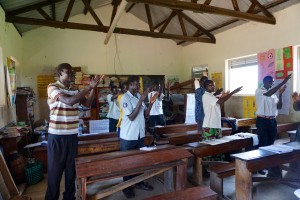 – But the cheekiness is met with great generosity by the attending parents, as they offer to supply the teachers with some land as well as support in the preparation of the land. Filled with motivating appreciation claps for their work, the two-days workshop at St Kizito Bidati ECD centre passed quickly and they look forward to the next workshop, eager to set their CMP into stone.
– But the cheekiness is met with great generosity by the attending parents, as they offer to supply the teachers with some land as well as support in the preparation of the land. Filled with motivating appreciation claps for their work, the two-days workshop at St Kizito Bidati ECD centre passed quickly and they look forward to the next workshop, eager to set their CMP into stone.
From the perspectives of the ‘Juliuses’
Following the workshop, we had the opportunity to talk to a PTA and CMC member who are both called Julius. Find out more about them in the following paragraphs!
Julius #1 – PTA member
We had the opportunity to chat to Julius, a farmer and PTA member at St Kizito Bidati. Four of his five children have already left primary school, but Moses, his youngest, remains and additionally, two of his grandsons, Patience and Emmanuel, from his oldest son, Walter, are currently in K3. Last year, Julius was selected as a PTA member by the community – a position that he has appreciated so far:
“I like it, because I am part of the school, it makes me part of the school. I know how learning is taken place; and above all, my child are also here.”
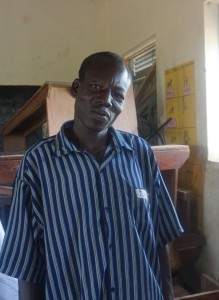 Here is an extract of our feedback-chat:
Here is an extract of our feedback-chat:
What do you think about the performance of the school ?
The school is doing well, but there are certain things that need to be improved on – mostly the parents, who are not doing their part. What do you think of ECD? I am very positive about the ECD, because that is the foundation, for this school to succeed, although there are still challenges with them; there are a few things to be done with the ECD to have that quality.
What do you think of the Jumpstart! project?
For me, the Jumpstart! project is really good, it’s coming to complement what parents are trying to do.
What is best about it?
What I like most about this is the caregivers training, and refresher coursers, the way that teachers are being developed in their skills and are improving each time, because the teachers have demonstrated what they were like before and what they are now. And we, as the management, we were very happy about that. And I think, the impact will go to the children.
What do you think of the workshop?
This workshop is very good. And it wasn’t there before. No one was thinking about it. I now understand the planning – it gives people the opportunity to know what they are supposed to be doing. And I was interested to know more of the different roles of the stakeholders. And I was requesting that such support, if possible, should continue to the leadership of the school, to the management, because it would help them do their work well.
What’s the most important part for you to implement in the CDP?
For me, curriculum delivery is the most important, as well as supporting the teachers, their training and providing the learning materials.
What do you hope for the school?
My hope for this school is to have more caregivers; at least two per class, and this will improve the quality of teaching.
Julius #2 – CMC member
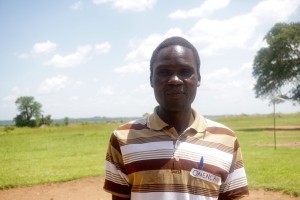 Meet Julius, a 36 year-old farmer from Bidati village in Nyowa district, father of Jacob, Prosie and Fiona, and dedicated member of St.Kitizo Bidati School Central Management Committee ! He was one of the attendees at the two-day Jumpstart! training workshop about developing a Centre Development Plan.
Meet Julius, a 36 year-old farmer from Bidati village in Nyowa district, father of Jacob, Prosie and Fiona, and dedicated member of St.Kitizo Bidati School Central Management Committee ! He was one of the attendees at the two-day Jumpstart! training workshop about developing a Centre Development Plan.
The most important thing that Julius learnt at the training is the importance of planning:
“before the training, the committee was motivated, but not so organised because there was no plan. Now we know who should do what at which time because in the plan everything is detailed – timeframe, goals, responsables, activities. And we are not stopping here – we will meet with other parents to communicate this knowledge.”
Learning how to create action plans has formalised the way the committee works, making them more efficient and productive. Julius is positive that with these new skills, the committee can encourage parents to unite to support the progress of the school.
In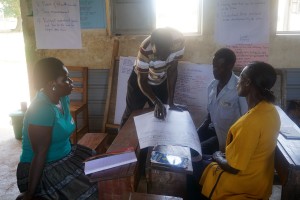 deed, Julius wants to form a committee plan that will raise the standard of education at nursery level, ultimately increasing the quality of teaching and learning and contributing to early childhood development. His belief in the importance of nursery education is based on his own experience as a parent. While his two daughters attended nursery school, his son Jacob did not. The two girls excel at school (Fiona is 1st in her class), often receiving certificates praising their academic performance and organisational skills. However Jacob struggles at school, and has little interest in completing his homework. Julius attributes the educational success of his daughters to their nursery education, which he says helped them to build basic skills and confidence before entering primary level.
deed, Julius wants to form a committee plan that will raise the standard of education at nursery level, ultimately increasing the quality of teaching and learning and contributing to early childhood development. His belief in the importance of nursery education is based on his own experience as a parent. While his two daughters attended nursery school, his son Jacob did not. The two girls excel at school (Fiona is 1st in her class), often receiving certificates praising their academic performance and organisational skills. However Jacob struggles at school, and has little interest in completing his homework. Julius attributes the educational success of his daughters to their nursery education, which he says helped them to build basic skills and confidence before entering primary level.
However, we think that Julius’s dedication to his children’s education has also contributed to this success. He keeps a close eye on his children’s progress both at school and at home, attending ‘lesson day’ each term, a time for parents to attend classes with their children, observe the work scheme and discuss the curriculem with the teachers. Julius regrets leaving school at a young age, so he really values lesson day;
‘I always want to attend, rather than my wife, and sometimes I ask to be set assignments with the children !”
Now that’s dedication ! In the future, he hopes that his children will study hard, but above all “be self-respecting individuals, with careers of their own, who value their jobs”. And he will also do his best to improve the quality of nursery education at Kizito Bidati so that all the students can grow as individuals and have successful careers.
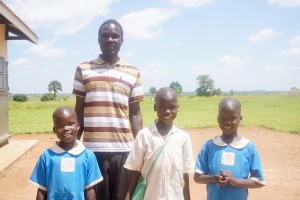
Teacher Profile: Meet Mrs. Shanachenga!
September 17, 2015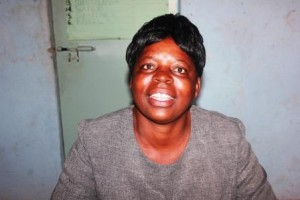 We would love to introduce you to Mrs. Shanachenga, the acting head-teacher of Inkumbi Basic School, located in southern Zambia’s Zimba district. Mrs. Shanachenga lives on the school compound in one of the teachers’ houses with her husband and some of her children, including her youngest, Timothy, who is enrolled in grade 1 at the school. The mother of seven children, Mrs. Shanachenga’s family is rapidly expanding; she already has five grand-children!
We would love to introduce you to Mrs. Shanachenga, the acting head-teacher of Inkumbi Basic School, located in southern Zambia’s Zimba district. Mrs. Shanachenga lives on the school compound in one of the teachers’ houses with her husband and some of her children, including her youngest, Timothy, who is enrolled in grade 1 at the school. The mother of seven children, Mrs. Shanachenga’s family is rapidly expanding; she already has five grand-children!
Mrs. Shanachenga qualified as a teacher in 1994 in Livingstone, and then went on to study for an additional teaching diploma before beginning her teaching career in 1995. Mrs. Shanachenga has been at Inkumbi Basic School for almost two years now teaching Grade 2, and she is also enjoying her new position as the acting head-teacher: “I am enjoying being the acting head-teacher; I am learning a lot. When you are not in administration, you might look and say that it is an easy job, but now that I am in this position, I have learnt that it isn’t easy- there are a lot of challenges but I like it. I would love to be promoted to be a permanent head-teacher one-day!”
Mrs. Shanachenga loves teaching, but it actually wasn’t her original career choice. However, she just couldn’t ignore her natural aptitude for teaching: “at first I had no interest in teaching, I wanted to work in the government in the Ministry of Defence; I went for interviews but I failed. However, I knew that I had a talent for teaching. That gift was apparent from when I was young…my fellow pupils would ask me to teach them, because I was very good especially in maths and science. After class, if my peers didn’t understand something, they would ask me to teach them, so I would go to the blackboard and explain the lesson to them again. It showed that I was a teacher from birth so it made sense to go into teaching; it was very easy and very natural to me.” It seems that Mrs. Shanachenga has inspired a new generation with her love for teaching, as her oldest daughter will be following in her teaching foot-steps and will be starting teacher-training next year!
Mrs. Shanachenga particularly enjoys teaching younger classes, and loves teaching her grade 2 class and contributing towards their development: “with teaching, what I like most is that you can see how children develop- some children have no problems learning, but others may need help. And once you help them nicely, then they will catch up. I like using my special skills to help all my pupils do well.” Mrs. Shanachenga hopes that with help, her pupils will grow up to “enjoy employment. Once the children are well-educated, mixing with people is easy and they will be able to go anywhere and do anything as long as they have their education.”
Although it is a rewarding vocation, being a teacher in a rural school admittedly has its fair share of challenges. Mrs. Shanachenga explained them to us: “over-enrolment is a real challenge in the rural set up; all our classes are over-enrolled and we only have 12 teachers for 736 pupils. For example, in grade 2, there are 93 pupils, so it is not easy for me to teach effectively because I need time to spend with children who need extra help. So it is a challenge, especially because we don’t have adequate teaching materials.” In spite of these difficulties, Mrs. Shanachenga and her entire teaching staff work very hard to give the children of Inkumbi the best education possible. With her dedication, we are sure that Mrs. Shanachenga’s pupils will not only excel in school, but also grow up to do great things!
Posted in News | Tagged African Revival, Changemaker, Education, Headteacher, International Development, Zambia | Leave a comment
